Card manufacturers adopting software and hardware advancements are benefiting from more productive factories, better quality products and overall production cost reductions. Those introducing new technologies onto the plant floor are also gaining a competitive edge, especially as businesses across the world navigate the COVID-19 crisis and its impact on manufacturing operations.

This trend is an example of Industry 4.0, the integration of automation and data exchange into manufacturing processes, which has started to gain traction in the card manufacturing industry.
Smart factory technology automates and digitizes many manual tasks on the production floor, allowing manufacturers to maximize the strengths of their facilities and production workers. Card manufacturers that have invested in new equipment and technology have been able to pivot operations to address challenges related to the global pandemic. To provide sharp relief, they quickly identified creative ways to produce much needed supplies for frontline workers. Some manufacturers have even shifted entirely to pandemic operations in a very short time span.
These high-tech environments will also serve as long-term solutions to meet new health mandates established as a result of the COVID-19 outbreak. As the production floor gets smarter, the need for human interaction lessens to enable a safer work environment.
“We no longer live in a world where standard manufacturing practices and procedures are adequate,” said Arnaud Fouqueray, WCE and manufacturing 4.0 manager, digital identity and security BU at Thales.
“Our first step in upgrading our factory was to begin integrating our datasets by introducing a Manufacturing Execution System (MES), which allows data to be stored in a single place. That gave us the ability to connect data in new and meaningful ways to identify and drive process improvements. It also simplified the shop floor by connecting many disparate pieces of software and providing a single authentication method and workflow.”
Many of the software upgrades translate into the creation of safe development areas where products can adequately be tested before deployment into the marketplace. When it comes to hardware, many machines’ core operations do not need to change but they are augmented with standalone sensors.
Thales also introduced a mobile robot to perform material fetch and retrieval tasks. The robotic features of Industry 4.0 are collaborative and designed around putting people first, which allows integration and adoption to happen faster. Thales’ robot integrates with its MES to provide a seamless experience for production operators.
“Process improvement is still the goal and there are many new ways to do it with the introduction of Industry 4.0 technologies,” said Surendra Chunduru, plant manager, banking and payment services, digital identity and security BU at Thales. “An increase in automation of routine and repetitive tasks results in a more consistent product across millions of units.”
The flexibility of smart factories frees up time for operators to perform value-added tasks—producing more with the same number of resources. This flexibility also enhances operators’ ability to quickly resolve unexpected issues with real-time decision making and reduces the amount of human error in the manufacturing process.
“Although the card manufacturing industry is benefiting from ‘smart’ technologies, the tech is not exclusive to card manufacturing and needs to be implemented with a degree of ingenuity to determine where and how the technologies can best be used,” said Christopher Lopez, WCE manager, banking and payment services, digital identity and security BU at Thales. “The technologies can be used efficiently only if companies have previously invested in lean tools and lean systems.”
Plant smartification can also include using new tools, such as mixed reality to improve training for employees. “The use of mixed reality was critical to keep business moving forward amid mandates for social distancing to prevent the spread of the coronavirus,” Fouqueray added. “The customizable software/hardware combination helps new operators quickly learn their machine, reducing the traditional hands-on time typically required of a trainer. Long-term adaptations integrating mixed reality will become part of the ‘new normal’ as companies employ smart technology.”
With Industry 4.0 upgrades, the need for employees who perform repetitive actions is diminished, but the demand for operators who have exceptional observational skills grows. Troubleshooting and communication skills are also becoming increasingly important for employees to possess in this new type of plant environment.
“Of course, there is always a bit of excitement and apprehension when it comes to change, but many of the upgrades have actually lowered our employees’ stress levels,” Chunduru added. “By automating certain processes, the operator can focus on real value addition by providing new insights into a process he/she may have been doing for many years.”
Want More Industry Insider Insights or a Glimpse into Global Card Trends?
For three decades, ICMA has represented the interests of the card manufacturing industry—which includes manufacturers, personalizers, issuers and suppliers—as its leading global association.
ICMA offers regular educational opportunities, including the web-based Card Industry Training & Education program, which provides information on key areas of the industry, as well as tutorials and webinars from industry experts. ICMA also provides reports on the card market and on personalization and fulfillment statistics to keep members informed of emerging trends and changing forecasts.
Throughout the year, ICMA members have the opportunity to share insights and knowledge by giving presentations at ICMA events, webcasts and tutorials. The organization hosts three conferences each year. The main event is the annual Card Manufacturing & Personalization EXPO and the other two conferences are CardTREX North America and CardTREX Europe.
To learn more about the benefits of ICMA membership, click here.
